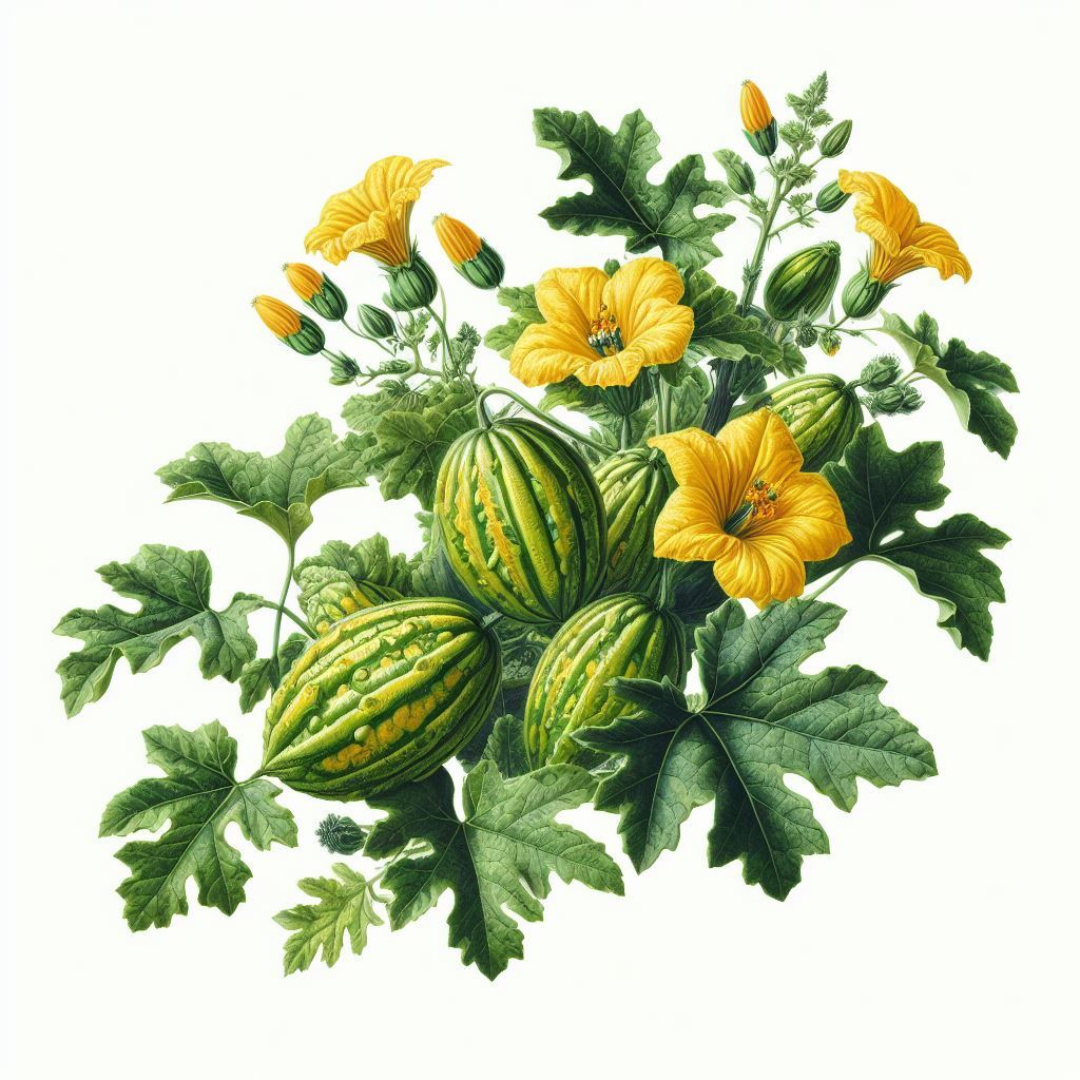Plants have played a crucial role throughout human history, not only as sources of food but also as providers of therapeutic medicines.

With the inflation and upsurge in the price of medicines throughout the country, people are unable to buy medicines; therefore, awareness through electronic and print media, as well as research studies on indigenous medicinal plants, should be the strategy for a healthy life. Several scientific studies have reported the therapeutic benefits of wild edible plants with no side effects. One noteworthy example of such a versatile plant is Citrullus colocynthis, commonly known as the bitter apple and locally called Tooh.
Plants have played a crucial role throughout human history, not only as sources of food but also as providers of therapeutic medicines. This connection between plants and human health is deeply rooted, as medicinal plants have been used in healthcare for centuries.
Today, the utilization of these plants for both preventing and treating illnesses is expanding globally. Beyond their role in medicine, plants also serve as essential sources of food and provide raw materials for numerous pharmaceutical drugs.
Citrullus colocynthis plant is celebrated for its multifaceted attributes, offering both nutritional and medicinal properties.
Its composition is quite impressive, with essential components such as protein (24.37%), fiber (1.91%), carbohydrates (10.88%), fat (56.61%), ash (3.15%), and moisture (3.08%). With such a diverse nutritional profile, it comes as no surprise that the bitter apple finds applications in various realms of health and well-being.
The medicinal potential of the bitter apple is evidence of the remarkable properties of plants. It contains various bioactive compounds, including cucurbitacin, flavonoids, and polyphenols, which collectively contribute to its medicinal value.
These compounds have been associated with a wide array of health benefits, including anti-oxidative, hypoglycemic, antibacterial, anti-cancerous, anti-inflammatory, and analgesic properties. The richness of these therapeutic attributes underscores the plant’s potential for both preventing and managing various health conditions.
One of the primary areas where the bitter apple shines is in the treatment of gastrointestinal issues. For centuries, the dried pulp of its fruit has been utilized to address problems such as indigestion, gastroenteritis, and intestinal parasites. This natural remedy has provided relief to many individuals and is a trusted solution for digestive ailments.
However, the bitter apple’s consumption extends far beyond gastrointestinal health. It has demonstrated efficacy in addressing pulmonary conditions, skin problems, bacterial infections, constipation, edema, cancer, and diabetes. This broad spectrum of applications positions the bitter apple as a versatile and invaluable resource for those seeking natural remedies to various health concerns.
The plant’s fruit, characterized by its bitter and spicy taste, has been employed for an array of health issues. It has been used to combat colds, diarrhea, parasitic worms, and the expulsion of wind.
Additionally, the bitter apple has found use in treating conditions such as tumors, leukoplakia, ulcers, asthma, bronchitis, and even diabetes insipidus. This adaptability in addressing diverse health challenges highlights the plant’s versatility in traditional medicine.
Notably, the bitter apple’s root also offers therapeutic benefits. It has been harnessed for the treatment of jaundice, ascites, urinary disorders, and rheumatism. In children, it serves as a remedy against enlarged abdomens, coughs, and asthma attacks.
Furthermore, a root plaster derived from the bitter apple has been applied to treat breast inflammation. These diverse applications underscore the comprehensive nature of the bitter apple’s contributions to health and well-being.
In a world increasingly concerned about the potential side effects of synthetic drugs, there is a growing interest in traditional medicines. People are becoming more health-conscious and are seeking natural alternatives to enhance their well-being. This trend has propelled ethno-medicinal studies to the forefront of medical research and has fostered a rising demand for herbal-based medicines.
The Tharparkar region, blessed with abundant plant diversity, holds significant promise for exploring the nutritional and therapeutic properties of various plant species.
The bitter apple is just one of the many untapped resources in this region. While it has been primarily used for animal food and some local applications, there is immense potential for further research into its nutritional profile and therapeutic benefits for human consumption.
The development of food products from bitter apple (Citrullus colocynthis) and its by-products offers a unique opportunity to harness the plant’s nutritional and medicinal properties while minimizing waste.
Here are some potential food products and applications: jam and preserves, juice, powder, snacks, extracts, infused oils, dietary supplements, and bakery products. Products are utilised in several ways, such as the extraction of seed oil, animal feed, herbal teas, cosmetic and personal care products, etc.
It’s essential to ensure proper processing and quality control when developing food products from bitter apples to maintain safety and consistency.
Additionally, clear labelling and communication of the potential bitter taste and health benefits can help consumers make informed choices. The development of these products can contribute to reducing food waste and promoting the utilisation of underexplored plant resources.
In conclusion, the bitter apple of Tharparkar is a botanical treasure offering a multitude of health benefits, medicinal value, and therapeutic properties. Its versatility in traditional medicine and its rich array of bioactive compounds make it a valuable resource for promoting well-being and managing various health conditions.
As the world increasingly turns to natural remedies and traditional medicines, the bitter apple stands as a symbol of the untapped potential of plant-based solutions for a healthier and more sustainable future.